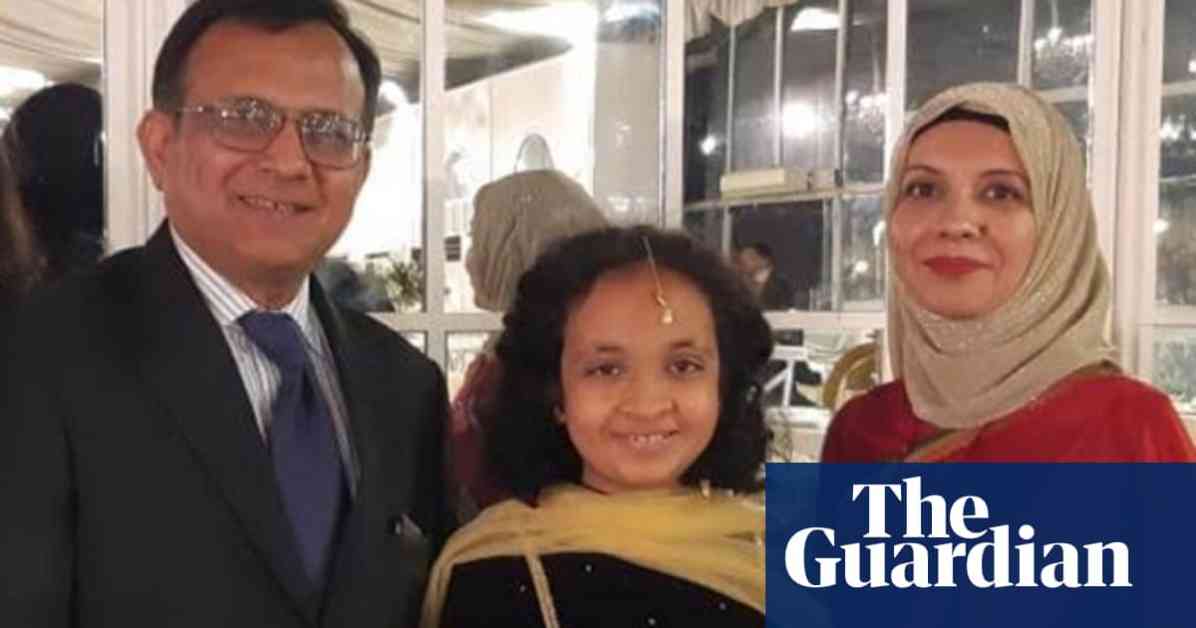Doctor’s Visa Victory: Home Office U-turn Saves Family from Separation
A doctor from Pakistan, Tajwer Siddiqui, faced the prospect of leaving his job at a GP surgery in east London due to a visa setback that would have separated him from his family. However, after a Home Office U-turn, Siddiqui, his wife Shehlar, and their daughter Alina can now breathe a sigh of relief as they can remain together in the UK.
The Siddiqui family’s ordeal began when their daughter Alina, who is 19 years old and has autism, was initially denied a visa to join her parents in the UK. The Home Office cited her age and a lack of “compassionate or compelling circumstances” as reasons for the refusal. This decision threatened to tear the family apart, as Alina relied on her parents for care and support due to her condition.
In a refusal letter dated 29 August 2024, the Home Office official stated that the separation of Alina from her parents did not meet the threshold for “unjustifiably harsh consequences.” This decision left the Siddiquis devastated and unsure of how to proceed. However, after their case was publicized in the media, the Home Office had a change of heart.
A Home Office spokesperson confirmed that they had reconsidered the case and were in contact with the family to provide them with the necessary guidance. This sudden turnaround brought immense joy and relief to the Siddiqui family, who had been living in uncertainty and fear of being separated from their daughter.
Tajwer Siddiqui expressed his gratitude for the Home Office’s decision, stating, “I’m out of words, I’m so overjoyed about the Home Office’s change of heart. Alina cannot go out by herself and psychologically she is very attached to us. We hadn’t had the courage to tell her her visa had been refused. We are so relieved and my daughter will be very thankful.”
A Lifeline for a Dedicated Doctor
Tajwer Siddiqui, a highly skilled doctor with years of experience in Pakistan and Saudi Arabia, had successfully applied for a visa to work at an NHS GP surgery in Ilford, east London. The GP surgery, called Doctor’s House, sponsored his visa and he started working there as a GP assistant. Siddiqui was in the process of completing the PLAB test, a requirement for overseas-qualified doctors to practice in the UK.
The practice business manager, Ikram Khan, praised Siddiqui’s contribution to patient care at the surgery since he joined the team. Siddiqui’s expertise and dedication to his work were evident, and his presence was valued by both staff and patients alike. The news of the Home Office’s U-turn came as a relief to everyone at the surgery who had grown to appreciate Siddiqui’s skills and professionalism.
A Family Reunited
Apart from Tajwer Siddiqui, his wife Shehlar is also a qualified family doctor who aspired to work in the UK. She had been granted a visa as a dependent of her husband, allowing her to pursue her career in medicine alongside him. The Siddiqui family’s dream of building a life together in the UK seemed within reach once again, thanks to the Home Office’s reconsideration of their case.
The Siddiqui family’s journey serves as a reminder of the challenges faced by many immigrants who seek to build a better future for themselves and their loved ones in a new country. The uncertainty and anxiety that come with navigating visa processes and immigration laws can take a toll on families, causing emotional distress and disruption to their lives.
The Home Office’s decision to grant Alina Siddiqui a visa reflects a compassionate approach to immigration cases involving vulnerable individuals and families. By recognizing the unique circumstances of the Siddiqui family and prioritizing their unity and well-being, the Home Office has demonstrated a commitment to upholding values of compassion and empathy in its decision-making processes.
In conclusion, the Siddiqui family’s story is a testament to the power of perseverance, advocacy, and community support in overcoming bureaucratic obstacles and securing a brighter future. Their victory in the face of adversity serves as a beacon of hope for others who may find themselves in similar situations, seeking justice and fairness in their pursuit of a better life.












